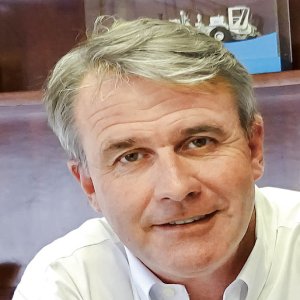Mexico is EPC's Key to the Atlantic Market

STORY INLINE POST
With the Energy Reform looming in the mid-2000s, McDermott, a global EPC leader in offshore and subsea developments, saw an opportunity to become more competitive by serving the Atlantic market as well as both sides of the Gulf of Mexico with a new, shore- side yard in Altamira, Tamaulipas. Juan Manuel Pineda, McDermott’s Vice President of Mexico, Latin America, and the Caribbean, stresses that Altamira plays an extremely important role within the company’s international investment portfolio, as it is one of its three main global pillars. The other two yards are situated in Jebel Ali, near Dubai, which principally serves the Middle East and India, and in Batam Island, located in Indonesia, which responds to the needs of the Pacific region and Southeast Asia. The Altamira yard is the company’s primary base for the supply of projects in the Atlantic Ocean.
The Mexican offshore sector will see heightened activity due to the blocks awarded in Round Zero and Round One. Pineda claims that if the market were suddenly to require more capacity, McDermott would be able to nimbly respond to that need once its current projects are concluded, as the Altamira yard is being built in various steps. “Expanding the yard would simply require us to build on what we already have, and in fact, the engineering work is practically completed.” Although McDermott’s Altamira yard is considered to have the greatest capacity in Mexico, the company is ready to invest in its expansion if needed. Pineda notes that there are yards of similar capacity in both Altamira and Tampico, but these do not have as many prefabricated workshops, meaning that in terms of productive man hours, McDermott is one step ahead.
The Altamira yard was built to respond to the potential needs of any client regarding deepwater projects, an area in which McDermott has plenty of international experience. Pineda explains that deepwater platforms have specific infrastructure requirements, as they need a floating part called a hull. “Since these need to be built in a shipyard, a resource that Mexico does not have, they are generally sent to us from East Asia. The superior structure is called a topside, which consists of modules used to generate energy or process oil and these components can be built in Altamira. We expect these construction activities to begin in seven to ten years, as there are several steps to be taken beforehand. Until then, we will continue our focus on shallow water infrastructure.” Pineda expects substantial work in the Bay of Campeche, which has many fields, and also in all the blocks allocated in the different phases of Round One.
Out of all the projects McDermott has carried out in Mexico, Pineda believes the PB-Litoral-A platform in the Tsimin-Xux fields serves as the best example of the company’s capabilities. The project involved engineering, procurement, construction, transportation, and installation, all of which was carried out directly by McDermott. “The basic engineering work was conducted by our office in Houston, while more detailed engineering was left to our Chennai office in India,” Pineda shares. Procurement was shared between the Houston and Mexico offices and the fabrication was carried out entirely in the Altamira yard. The main structure was transported using McDermott’s Intermac 600, and the Derrick Barge 50 was used to install the structures and execute the float-over, a technology in which PEMEX is now investing after McDermott introduced it in Mexico. “The float-over operation involves constructing the platform in the middle of the ocean rather than onshore. PEMEX awarded us the first contract for float-overs at the end of 2012 for the PB- Litoral-A project. This allowed PEMEX to become slightly more independent from its suppliers, as there are now various ways to install its platform.” The EPC company is now working with PEMEX on the offshore commissioning process of the platform so that operations can soon be started. “One of the particularities of this project is that McDermott was able to provide all services surrounding construction activities throughout the full three-year duration,” highlights Pineda.
Pineda says that McDermott’s work depends to a large extent on its clients and their ability to invest, a strength highly linked to the price of oil, and at the moment, the turbulent environment poses many difficulties to market players. Fortunately, McDermott signed a few contracts back in 2012, before the price of oil fell, ensuring projects throughout 2015. In addition, the company was able to renew one of its contracts with PEMEX. “We are withstanding the storm by continuing previous projects. It is important for companies to realize this industry requires a long-term focus, and in difficult circumstances, companies must adapt and withstand the challenges,” Pineda advises.
























